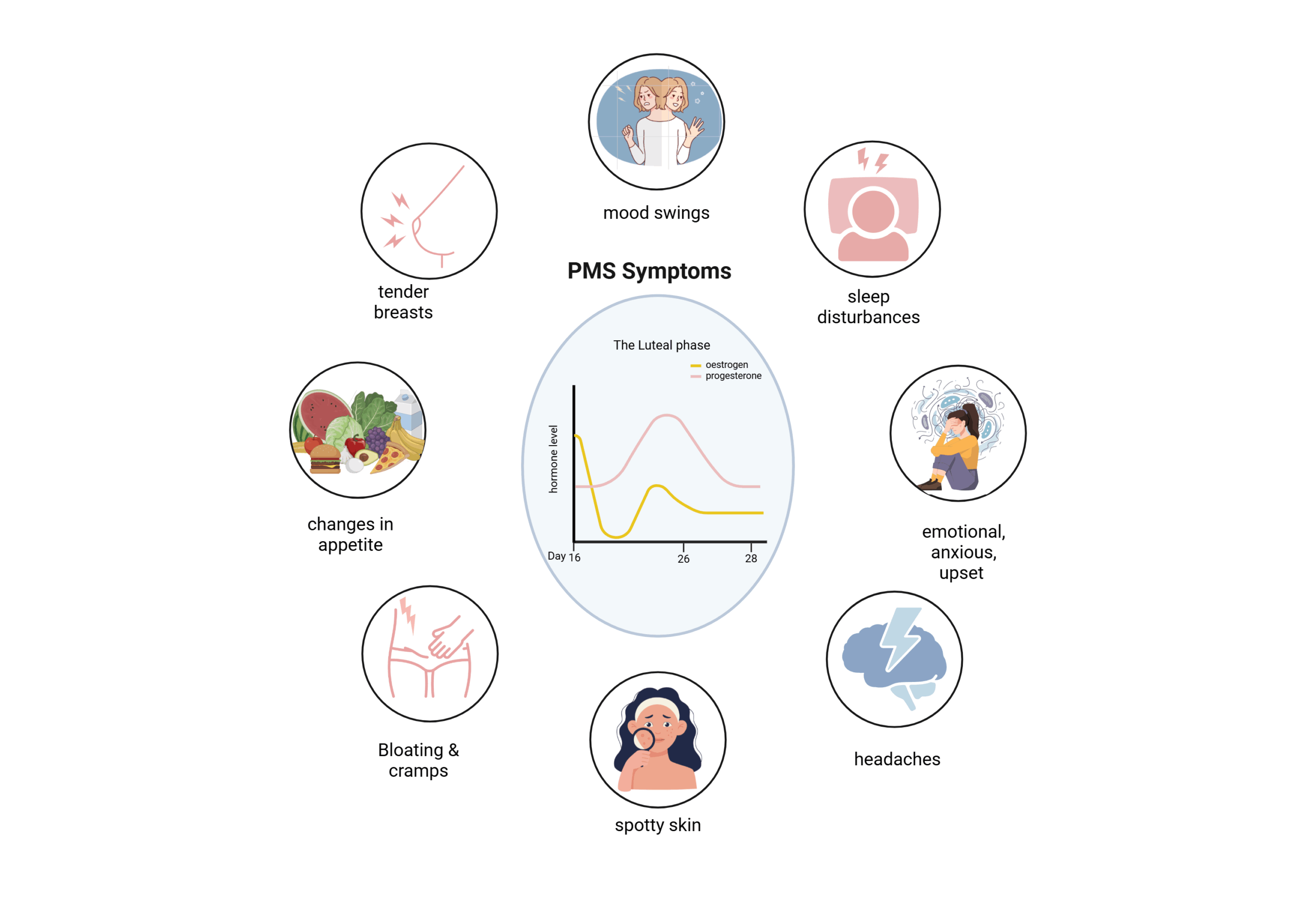Premenstrual syndrome (PMS) is a common condition, with an
estimated 75–90% of women reporting symptoms at some point
during their reproductive years. PMS is characterized by a range of
psychological and physical symptoms that occur during the luteal
phase of the menstrual cycle.

Although the precise pathophysiology of PMS remains unclear, it is
thought to be driven by fluctuating levels of hormones oestrogen
and progesterone in the days leading up to a menstrual period.
Fluctuation in levels of these hormones can affect circulating levels
of neurotransmitters such as serotonin. Insufficient amounts of
serotonin may contribute to premenstrual depression, fatigue, food
cravings and sleep disturbances.
Could Gut Health Play a Role?
Our growing understanding of the intricate connections between
hormonal fluctuations, the gut microbiome, and brain health has led
to an increase in scientific research into whether probiotics
(beneficial bacteria) and prebiotics (fibre that feeds the beneficial
bacteria in the gut) might help restore balance and ease the
symptoms of PMS.
Use of Probiotics, Prebiotics and Symbiotics in the Management of
PMS Symptoms
Research has shown that supplementation with certain strains of
Lactobacillus bacteria, such as paragasseri and gasseri can
significantly improve premenstrual irritability and arousal, as well as
improving mood-related premenstrual symptoms, such as
depression and anxiety. In animal studies use of lactobacillus
helveticus, has been shown to help balance oestrogen,
progesterone and prolactin levels and alleviate uterine inflammation.
Prebiotics are dietary fibres that selectively nourish the beneficial
bacteria of the gut. By promoting populations of Lactobacillus,
(which have been associated with improvements in PMS symptoms)
prebiotics can increase the production of short-chain fatty acids
like butyrate. Butyrate influences serotonin pathways and immune
responses, which can indirectly ease the symptoms of PMS-related
mood swings, fatigue, and inflammation.
Given the complementary benefits of probiotics and prebiotics,
there is clear potential for the use of symbiotics (combined prebiotic
and probiotic interventions) in the management of PMS.
Although the number of scientific studies available is limited, the
research carried out to date provides clear evidence of a link
between the gut microbiome and PMS and offers exciting new
paradigm for development of treatments to help women manage
their symptoms.
While more research is still needed, taking care of your gut may also
mean taking care of your cycle. Probiotics, prebiotics and
symbiotics may offer a natural, science-backed way to soften the
impact of PMS and support overall wellbeing.
